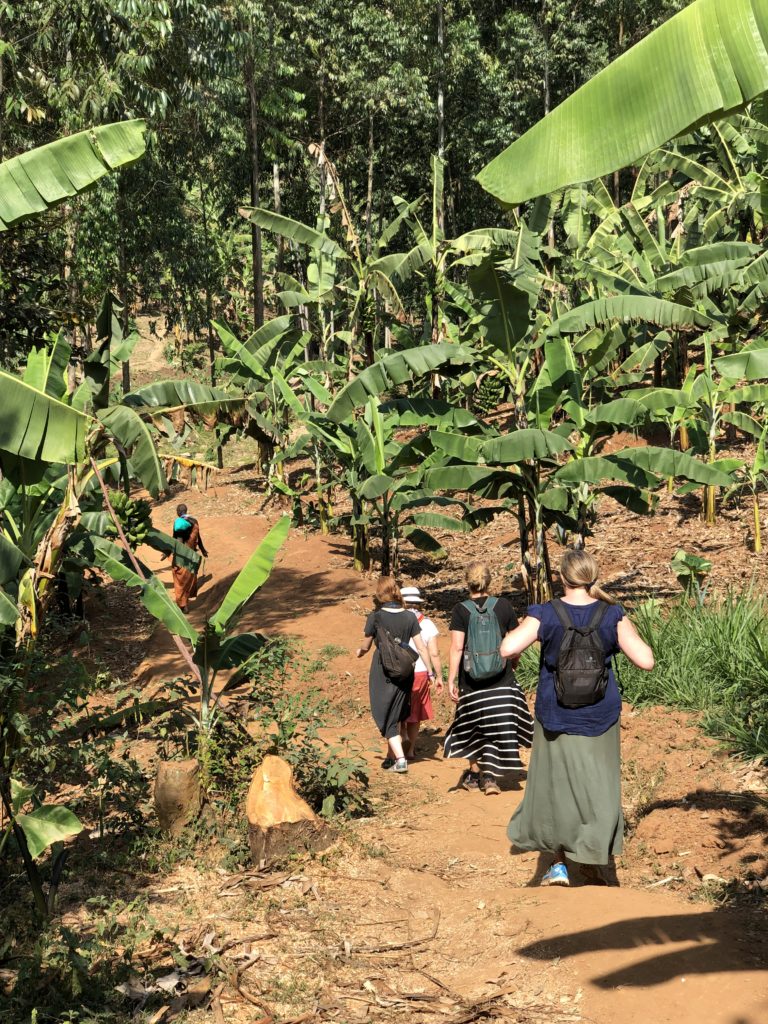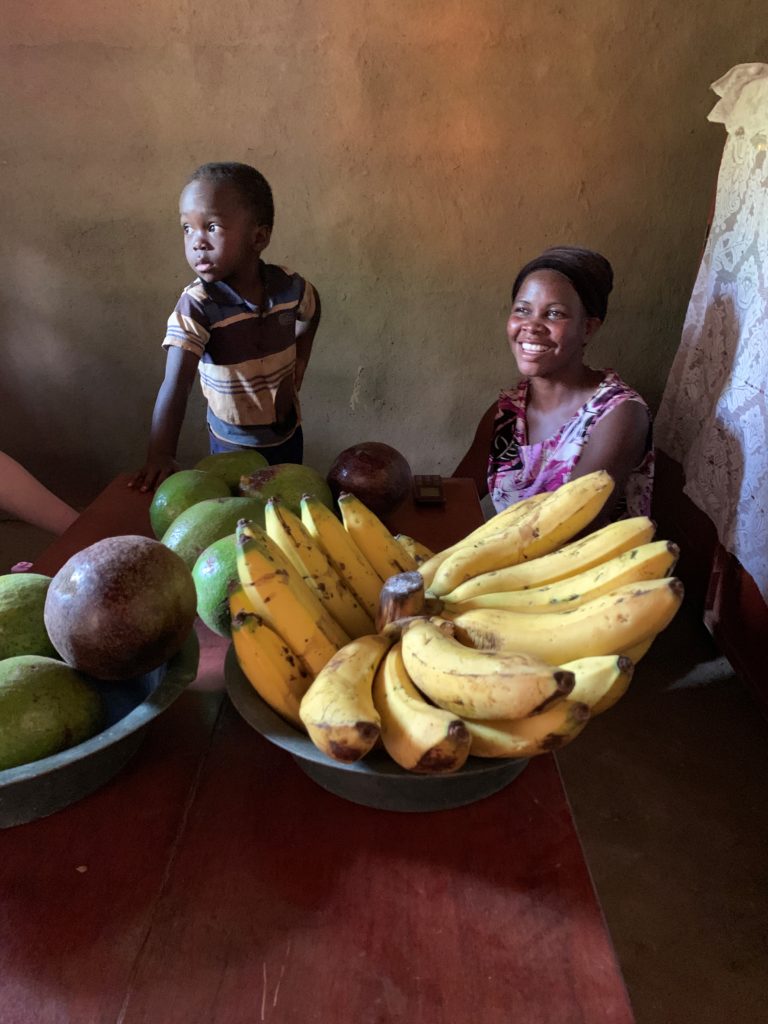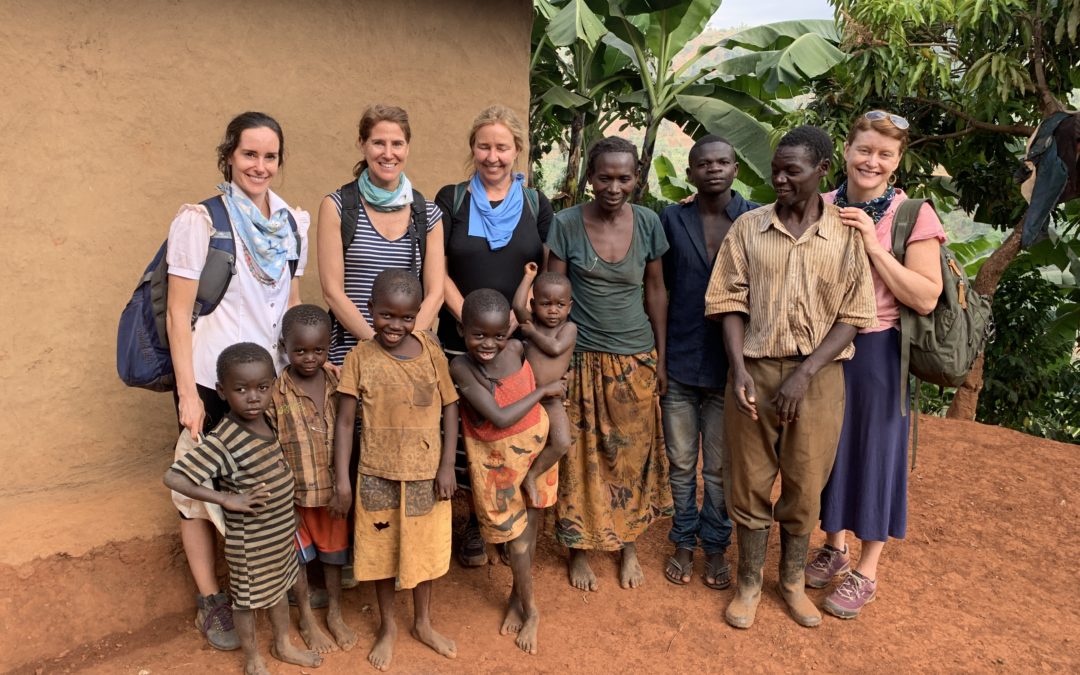Follow along with eight disciples as they travel to Bududa, Uganda to work with our partners at the Bududa Learning Center.
To experience so many intense, passionate emotions in one day seemed unfathomable… until today.

As the newest members of the Uganda MPPC team, we have experienced a lot this week, but we were beyond excited to go on home visits with social workers from The Children of Bududa Program. This is an incredible opportunity to visit with the families of the children in the program, to see where they live, how they live and to be welcomed as friends into their homes and we eagerly waited at 8 a.m. this morning to start our day. Given the distance we would travel, we would make most of the journey via ‘pikipiki’ – the Bududa equivalent of a taxi, but in the form of a motorbike versus a car. The journey itself was filled with emotion, riding on dark red clay roads, through thick clouds of dust, moving up and up into the lush surrounding mountainside until the
Riding over the rough and bumpy hills of Bududa was like a terrifying and exciting rollercoaster, but it was easy compared to the rollercoaster of emotions we experienced on these five home visits.
Surprise
Everywhere we traveled today, especially in the extremely remote areas, children would heard the rumble and dust of several pikipikis and came running from all directions with shouts of “Melembe Mzungus!” (which loosely translates to “Hello white people!”). It is said with joyous abandon, a recognition of someone who is different, but meant as a welcome. The other greeting is a loud and proud chorus of “How are you?” which can only be answered with “I am fine!”. This can be repeated indefinitely with the children, followed by laughter and smiles at this silly game one can only play with Mzungus.
Another surprise was the comings and goings of farm animals. It is common to see chickens and chicks indiscriminately wandering about home, business and school, but in one case, we met a family that even brought their cow inside at night to ensure it wouldn’t be stolen.
Another surprise is the decoration of the sturdy, mud brick homes that are common in this part of Uganda. Almost every home has some form of decoration on the walls – often some kind of poster, newspaper clippings, pictures of political leaders or most common, some scripture or biblical passages, a common thread that weaves throughout this community.
Sadness
Some of the families live in overwhelmingly dire living conditions that left us breathless. We visited homes with 10+ children, sleeping four to a room the size of an average closet in America, on piles of clothing, straw mats, or the floor itself, many lacking the life saving mosquito nets that cost approximately $5. For the poorest families, it would not be uncommon for each person to only have one or two things to wear, so clothes are ragged and worn, sometimes not much more than rags that have endured in the red clay dust and intense sun. Shoes are a luxury, particularly when you consider the amount of walking required to work the fields, get to school, get to medical care.
In this rural, remote part of Uganda, medical care is a constant challenge. We heard numerous stories of families that were depleted financially by illnesses that are far removed from our daily lives – Hepatitis B, Typhoid Fever, Malaria, and HIV, with many suffering from viruses and infections that would be easily managed by over the counter medications in the US, but can radically change the trajectory for a family in Uganda.
Perhaps the hardest thing to see is the children with protruding bellies that indicate a clear lack of food and nutrition. Especially in contrast to their bright, curious eyes as they sneaked glances at the strange, pale visitors in their home.
Grace

All of the home visits were different. Some were exceedingly difficult, where we talked about a lack of employment opportunities, a difficult growing season, not enough food to eat. Others were a celebration of family and the success of their children – talking about strong report cards and getting into good schools and pursuing dreams of being a teacher, a nurse, an engineer. These are the same conversations that happen around the world, but these are colored by the cultural grace of Uganda. Every home we had the privilege to visit included a warm and welcoming hospitality, regardless of circumstance. It is exceptional to be accepted into someone’s home this way – always given a seat of honor, many times given food that cannot be spared, graced with love and prayers that we will return. It is a physically comfortable culture – hugs and handshakes and big, easy smiles – coupled with shyness and pride and genuine joy at receiving visitors. A common phrase is “You are most welcome…” and we have never felt that more completely than we have in these modest, faith filled homes.
The privileges and clutter that we are blindly emerged in at home are absent here in Bududa. We wonder if this absence in monetary possessions leaves more room for what appears to be an ever present, solid foundation of faith. It feels as if this simple observation might be our biggest take-away when all is said and done.
We are humbled by the opportunity to make even a small impact in these families’ lives, to be able to pray for them, and we are grateful to experience the majestic beauty of God’s creation here in Bududa.
– For the Uganda Team, Isabel Owen and Susan Wallace

